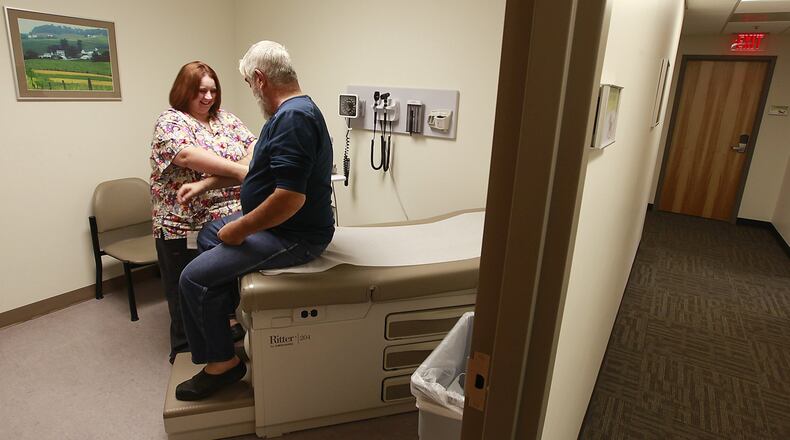Preventative visits are one of the most important things you can do to maintain your wellness—so important, that Medicare thinks you should have one each year for free.
Under Medicare Plan B coverage, you can visit your primary care provider for one annual wellness visit each year, at no cost to you. At this visit, your provider will go through an in-depth health risk assessment with you, which is a comprehensive health evaluation tool, according to Rachel June, MD, a primary care provider at Kettering Health Years Ahead Health Center.
“It’s really comprehensive,” Dr. June said. “It asks overall how their health has been, then breaks down into further categories regarding concerns about hearing or vision, how they’re doing at home, their ability to manage medications, and their risk for falling at home.”
Dr. June added that other areas such as incontinence, mental health, and substance abuse are also assessed during these visits. Often times, these visits can help uncover small issues that can be addressed by your primary care provider before they become larger issues.
After this assessment, you and your provider will work together to create a personalized health plan that fits your lifestyle. They may also suggest follow-up appointments and screenings if your assessment shows anything of note or would require further treatment.
“I go through the assessment with the patient and see if there’s anything that they flag as a potential problem,” Dr. June said. “It helps us come up with an individualized plan for each patient, based on where their concerns are and where they see risk.”
This is also a time, Dr. June added, where she can check on a patient’s routine immunizations and screenings—such as mammograms or colonoscopies—to make sure those are being done when they should.
As a primary care provider, Dr. June said it’s important to her that patients take advantage of these visits each year to make sure their care is coordinated, too. Even if their health has not changed significantly year-to-year, their care team might have, and that’s valuable information for any primary care provider.
“I see myself as a kind of care team coordinator,” Dr. June said. “My patients often have several other specialists, and this is a chance for me to make sure I know what’s going on at all of their appointments and be on the same page to help them be as healthy as possible.
“People often don’t have this opportunity, so you’re only seeing them for their problem visits. It’s a good check-in point to make sure they’re okay, active, and functioning to the best of their ability.”
About the Author
